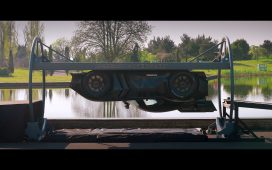DRIVERS have been warned that their car could get stopped by police over the state of windows, despite passing its MOT.
Tinted car windows can improve a driver’s experience, reducing sun glare and keeping the interior cooler.
However, they can also see you fall foul of the law and land a hefty fine.
And It’s important to keep in mind that having your car windows tinted will reduce the amount of light passing through the glass,
But it will make it harder to see in low-light conditions.
A post on the North Wales Police Roads Policing Unit Facebook site said they have been in the western area as part of a road safety operation and made several stops in the Valley area of Anglesey.


And among offences, including using mobile phones and a tyre offence, police said there were “Numerous TORs (Traffic Offence Reports) given for tinted windows.
The law states for cars registered after April 1985, the front windscreen must let at least 75% of light through and the front side windows must let at least 70% of light in.
And for vehicles used before 1985, the front windscreen and front side windows must both let at least 70% of light through.
It’s illegal to fit or sell glass that breaks the rules on tinted windows.
And the police or the Driver and Vehicle Standards Agency (DVSA) vehicle examiners use light-measuring equipment to measure window tint.
If your windscreen or front side windows are tinted too much drivers could get a ‘prohibition notice’ stopping drivers from using their vehicle on the road until the extra tint has been removed.
And they can also receive a summons to court or a penalty notice.
Yet the annual MOT test, which determines if your car is roadworthy, doesn’t check window tint.
Laura Newton, transport solicitor at Rothera Sharp, said: “Many people will be advised about it first as police have a flexible approach – they want it rectified.
“Normally, they’ll give them a notice to produce documents within 14 days to prove it’s been sorted.
“If you have a car with tinted windows, go and get them checked.
“If you get a prohibition notice, you’ll have to pay to get the car released and will be stuck at the roadside.


“There’s always a risk in extreme cases that police will say it’s being driven in a dangerous condition and you can end up with a financial penalty and the risk of endorsement.”












